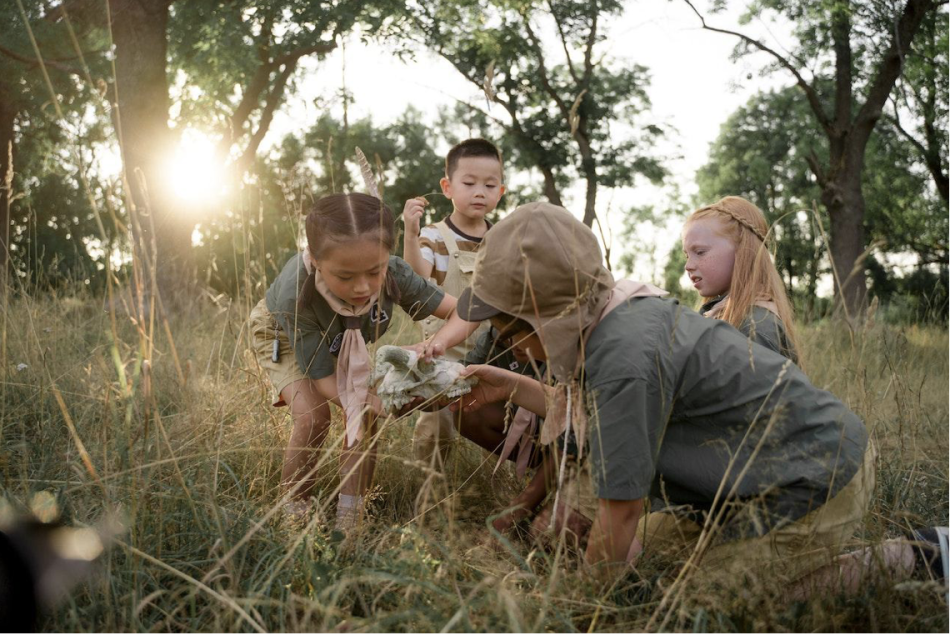How spending time outdoors promotes good mental health in children

IMAGE: pexels
As a parent or caretaker, it’s important to look for ways to support a child’s well-being, and not just their physical wellness. Their mental health should also be a top priority. While there are many factors that contribute to mental wellness, spending time outdoors is one that shouldn’t be overlooked.
Time spent in nature has been shown to have a positive impact on mental health, and children who spend more time outdoors are often considered to be happier, healthier, and better equipped to handle life’s challenges. It’s worth considering how to practically incorporate a range of outdoor activities into kids’ routines to influence the greatest emotional and psychological benefits.
We’re going to take a moment to explore how spending time outdoors promotes good mental health in children.
Reduced Screen Reliance
It’s not uncommon to see children glued to screens these days.. Screen time isn’t inherently bad, of course. It can provide kids with the skills they need to thrive as digital natives. Nevertheless, the amount of time children spend in front of screens has increased significantly over the past decade and rose to around four hours a day during the height of the COVID-19 pandemic.
So, what impact does this increased screen time have on children’s mental wellness? One recent study found that children and adolescents consuming higher amounts of screen media (7+ hours a day) had lower levels of psychological well-being than those who spent less than an hour on devices. Not to mention that there are concerns that screen time might interfere with the development of social skills and the ability to communicate effectively.
The good news is that spending time outdoors can reduce excessive screen time and encourage a healthier relationship with technology. Heading outside regularly can encourage a better balance between tech and the real world in kids’ lives. It also introduces them to alternative options for entertainment and enrichment. Exploring nature empowers children to keep developing a sense of curiosity, which promotes cognitive development and creativity.
By introducing these actions into kids’ routines, reducing screen time can also feel like less of a parental punishment and more of a positive way to expose children to experiences that promote happiness and well-being.
Improving Independence and Self-Confidence Exposure to Nature
Engaging in activities when surrounded by nature can help reduce stress and anxiety, improve mood, and increase feelings of happiness and well-being. This may be due to the calming effect of nature and the opportunity it provides for relaxation and reflection.
It’s also worth considering how outdoor activities provide children with a sense of independence and self-confidence. They get to explore new environments and face new types of challenges. This can help them to learn more about themselves and what they’re capable of. Making responsible and effective decisions in nature may improve their self-esteem.
There is a varied range of enriching activities to engage with the outdoors, too. At home, starting a vegetable garden can help kids to learn more about the climate and gain a sense of achievement from producing food. If there are lakes or rivers nearby, spending time on a boat or canoe can spark a sense of rewarding exploration. Even occasionally spending nights camped out under the stars can bolster children’s experiences of independence.
Increased Socialization
Socialization is a vital aspect of a child’s mental health and development. In fact, it is an essential factor in the emotional and psychological well-being of any child.
Heading outdoors can be a great way to give children social experiences they may find mentally enriching. This can begin with relatively simple regular trips to the local playground. An hour in this environment a few days a week can encourage children to interact with kids they don’t already know, share equipment, and even resolve minor conflicts.
It can also be smart to sign kids up for more structured social outdoor activities. Team sports can be a good example here, as they offer children opportunities to work together towards a common goal and communicate with one another. Not to mention that it helps teach kids to seek support from one another during challenging experiences.
In some instances, parents and caretakers could plan outdoor social events, such as parties, fundraising activities, or sports days. Large-scale events will involve careful planning, including establishing an appropriate location and having contingency plans for bad weather. With all the logistics taken care of, parents can then focus on making sure their children have a good time.
Conclusion
The benefits of spending time outdoors for a child’s mental health cannot be overstated. Parents and caregivers should take steps to incorporate a range of outdoor activities to promote emotional and psychological well-being. This should include elements that mindfully reduce screen time, encourage kids to socialize, and provide opportunities to interact with the natural world.
It’s also important to consider additional elements of kids’ wellness that support their engagement with outdoor activities. This includes solid nutritional balance, regular physical activity, and good sleeping routines. By ensuring children are well-prepared to fully interact with the outdoors, they can experience not just mental health advantages, but more holistic benefits.





